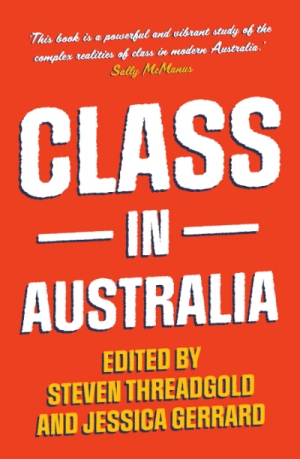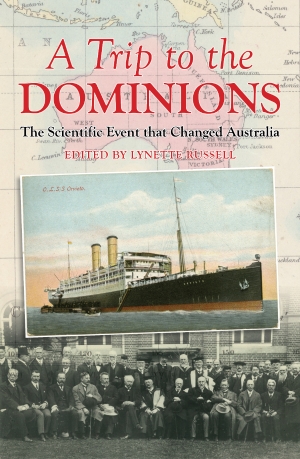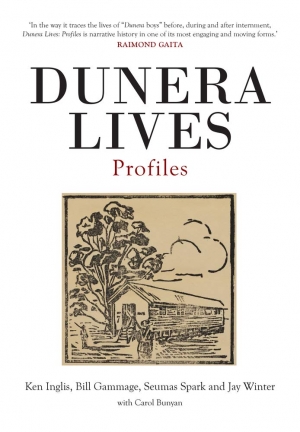Monash University Publishing
Sean Scalmer reviews 'Class in Australia' edited by Steven Threadgold and Jessica Gerrard
To contemplate class in Australia is to be confronted immediately by paradox. Australia has over the past forty years become much more unequal, and yet those institutions formed to contest class inequality – the trade unions and the Labor Party – have become weaker and less militant. The labour movement has largely avoided a language of class as divisive and old-fashioned, and yet right-wing propagandists have successfully deployed a rhetoric of ‘battlers’, ‘aspirationals’, and ‘élites’ to draw support and win elections. The university system has been transformed, so that its leadership is akin to a corporate class of ‘change agents’ and much of its workforce is insecurely employed. Within the halls of learning, class analysis has not for some time been an area of vigorous research; in the humanities and social sciences, the action (and the research funding) has long been elsewhere.
... (read more)Lyndon Megarrity reviews 'Labor People: The stories of six true believers' by Chris Bowen
Contemporary Australian parliamentarians tend to be focused firmly on the present. Speechwriters may liberally sprinkle the speeches of politicians with references to a political party’s golden past, but an MP’s sincerest interest in history often emerges when he or she gets around to publishing a memoir of their time in office. A politician’s autobiography is an exercise that encourages selective, rather than frank, reflection on how history will portray them, their enemies and friends. Some politicians, thankfully, embrace a broader, less self-interested view of the importance of history. Labor Opposition frontbencher Chris Bowen is the latest serving politician to display a commendable fascination with historical research. His new book tells the stories of six relatively forgotten figures who made a strong contribution to the Australian Labor Party.
... (read more)Susan Sheridan reviews 'Eve Langley and The Pea Pickers' by Helen Vines
In 1942, The Pea Pickers was published by Angus & Robertson in Sydney, garnering high praise for its freshness and poetic invention. A picaresque tale of two sisters who, dressed as boys, earn their living picking seasonal crops in Gippsland in the late 1920s, it impressed Douglas Stewart, literary editor of the Bulletin, with its ‘love of Australian earth and Australian people and skill in painting them’. The author, Eve Langley, was at that time incarcerated in the Auckland Mental Hospital, where she would remain for the next seven years, isolated from her estranged husband and three young children, and from her mother and sister, who were also in New Zealand.
... (read more)James Walter reviews 'Leadership' by Don Russell and 'A Decade of Drift' by Martin Parkinson
In 1958, the Australian political scientist A.F. Davies (1924–87) published Australian Democracy: An introduction to the political system, one of the first postwar attempts to combine institutional description with comment on the patterns of political culture. It introduced a provocative assertion: Australians have ‘a characteristic talent for bureaucracy’. Disdaining the myth of Australians as shaped by the initiative and improvisation of our bush heritage (Russel Ward’s The Australian Legend was published in the same year), Davies argued:
... (read more)Diane Stubbings reviews 'A Trip to the Dominions: The scientific event that changed Australia' edited by Lynette Russell
Founded in 1831, the British Association for the Advancement of Science (BAAS) sought to redress impediments to scientific progress that arose in the aftermath of the Napoleonic Wars, determining that the BAAS would ‘give a stronger impulse and more systematic direction to scientific inquiry … [and] promote the intercourse of cultivators of science’.
... (read more)Kieran Pender reviews 'A Secret Australia: Revealed by the WikiLeaks exposés' edited by Felicity Ruby and Peter Cronau
At the time of writing, Julian Assange – an Australian citizen – is detained at Her Majesty’s Prison Belmarsh in Thamesmead on the outskirts of London. Belmarsh is a high-security facility; Assange’s fellow inmates are terrorists, murderers, and rapists. The WikiLeaks founder is being held in solitary confinement, permitted out of his cell for just one hour each day. His crime? Assange is awaiting the outcome of extradition proceedings, in relation to charges brought against him by the US government. In 2019, he was indicted on one count of computer hacking and seventeen counts of violating the Espionage Act (1917) for his role in obtaining and publishing military and diplomatic documents in 2010.
... (read more)Peter Edwards reviews 'Spinning the Secrets of State: Politics and intelligence in Australia' by Justin T. McPhee
It is not surprising that a book on the politicisation of intelligence in Australia should begin and end by referring to the invasion of Iraq in 2003. For many Australians, that episode will long remain the classic example of the misuse of intelligence for partisan political purposes, in sharp contrast to the ideal that intelligence analysts should speak truth to power, giving policymakers their unvarnished assessments, rather than telling them what they want to hear.
... (read more)David Trigger reviews 'The Power Broker: Mark Leibler, an Australian Jewish life' by Michael Gawenda
Michael Gawenda’s engaging biography of Melbourne lawyer Mark Leibler traverses matters of Australia’s migration history, Jewish identity, and political influence. What has it meant to live a Jewish life in an Australian city? What have been the intergenerational impacts of the Holocaust, anti-Semitism, and the establishment of the Stat ...
Adam Wakeling reviews 'Dunera Lives, Volume II' by Ken Inglis et al.
Many have come to Australia in strange circumstances, but the two thousand or so who arrived on the Dunera and Queen Mary in 1940 have one of the most unusual stories. With the outbreak of World War II in September 1939, Germans and Austrians living in the United Kingdom became enemy aliens. In May 1940, with the British Army on the Continent facing destruction and with invasion a very real threat, Winston Churchill ordered every enemy alien in the country arrested and detained. It was, he later realised, a mistake, as most Germans living in the United Kingdom were Hitler’s enemies rather than his supporters, and many were actually refugees from Nazism. But some had already been sent out of the country on ships bound for Australia and Canada. Not since the last convicts had been dropped at Fremantle in 1868 had the British government banished people judged as undesirable to Australia.
... (read more)Jon Piccini reviews 'The Fatal Lure of Politics: The life and thought of Vere Gordon Childe' by Terry Irving
A young Australian radical, who finds academic success later in life, struggles with an inexorable question: what is the relationship between these two worlds: the activist and the scholar? This question animated the life of Vere Gordon Childe, the Australian Marxist and intellectual whose The Dawn of Euro pean Civilization (1925) helped establish modern archaeology, as it has his most recent biographer, activist and labour historian Terry Irving, whose Class Structure in Australian History (1981, with Raewyn Connell) remains a key text.
... (read more)









